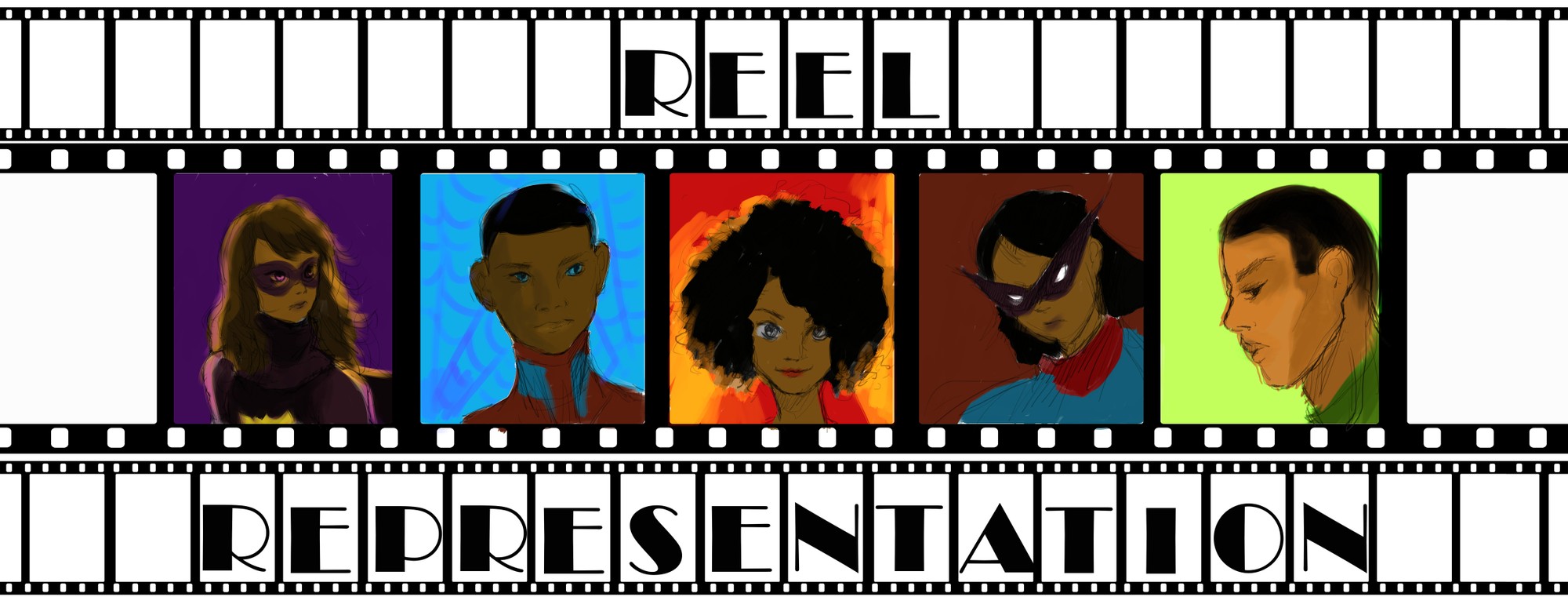Reel Representation: Marvel, DC struggle to produce diverse, inclusive superhero films

(Olivia Chen/Daily Bruin)
By Olivia Mazzucato
March 9, 2017 11:01 p.m.
Diversity in film and television came into the spotlight in 2016 with #OscarsSoWhite. A USC study in 2016 found only about a quarter of speaking characters belonged to nonwhite racial groups. In “Reel Representation,” columnist Olivia Mazzucato discusses different issues of race and representation in media as they relate to new movies and TV shows.
Where is Ms. Marvel?
Don’t get me wrong, the recently released trailers for “Deadpool 2” and “Guardians of the Galaxy Vol. 2” made me laugh – I loved the originals, and I’m excited to see the continuing adventures of Wade Wilson and Peter Quill. However, theirs are not the superhero trailers I’m most anxious to see.
Ms. Marvel, or Kamala Khan, is one of my favorite comic-book superheroines. She’s smart, funny and relatable: The character grew up admiring the Avengers and even writes online fan fiction about them. The series receives critical acclaim and awards, and is often one of the highest-selling comics.
Although they have fairly diverse comic-book libraries, both Marvel Studios and DC Entertainment are failing to make diverse films. Both studios have diversified their supporting characters, but the current discussion is framed in a way that focuses on competition between the studios, rather than inclusion and the impact of superhero movies on young women and children of color.
[Related: Reel Representation: ‘Hidden Fences’ gaffe depicts worrying outlook on representation]
The Marvel Cinematic Universe has a few supporting superheroes of color, such as Sam Wilson and Gamora, as does the DC Extended Universe, with characters like El Diablo and Katana. However, neither studio currently has a lead superhero of color – 2018’s “Black Panther” and “Aquaman” movies will mark the first for each studio. And neither studio has announced films starring female superheroines of color (with the possible exception of the European-descended, Israeli-born Gal Gadot, who plays Wonder Woman).
This dearth of representation is not for lack of quality, diverse source material. The recent “Ultimate Spider-Man” comic series stars Miles Morales, a teenager of black Hispanic descent. The series is financially successful and widely read, but the most recent Spider-Man film adaptation opted for a third incarnation of a white Peter Parker, in spite of fan support for a Morales adaptation.
Marvel’s representatives have been evasive about this lack of diversity. On the subject of diversity, Marvel Studios President Kevin Feige said, “It can certainly be done. I hope we do it sooner rather than later. But we find ourselves in the very strange position of managing more franchises … you have to put one franchise on hold for three or four years in order to introduce a new one. I don’t know. Those are the kinds of chess matches we’re playing.”
Feige shifts the blame and dismisses diversity as a waiting game rather than an omission, despite being one of the chief decision-makers at the company.
DC has escaped similar scrutiny, largely because its extended universe is much younger than the Marvel Cinematic Universe. “Suicide Squad,” the franchise’s third film, features many diverse characters – almost half of the titular team is made up of people of color.
The issue of diversity in the comic realm has often been reduced to a competition between the two companies. Representation has been characterized as a “diversity arms race” and a “strategy” to outperform competitors, terms that minimize the importance of representation in comics and movies as a whole.
Films shape our culture and perception of identity. They affect the way we see others and ourselves. This is especially true for children – studies have shown that love for superheroes is correlated with increased self-confidence.
Studies also show that children’s self-esteem is linked to television images and that it may negate the positive psychological impact of superheroes.
The University of Cincinnati found that watching television increases the self-confidence of white boys while decreasing the self-confidence of black boys and both black and white girls. The researchers attribute the disparity to the portrayal of different demographics – white males are often portrayed favorably, while women and black men are not.
The pattern of positive white male portrayal at the cost of representation of women and people of color holds in the superhero films of Marvel and DC.
[Related: Reel Representation: Asian-Americans gravely underrepresented in mainstream cinema]
One of the strongest arguments for inclusivity and representation is a story told by actor Djimon Hounsou, who appeared in “Guardians of the Galaxy.” At a San Diego Comic-Con panel, Hounsou said, “I have a 4-year-old son who loves superheroes from Spider-Man to Iron Man to Batman. … One day, he looks at me and says, ‘Dad, I want to be light-skinned so I could be Spider-Man. Spider-Man has light skin.’ That was sort of a shock.”
A 4-year-old wants to change the color of his skin because even in his childhood worldview, he recognizes that his favorite heroes are white. Some people make the argument that diversity in film pales in comparison to other issues, but the anecdote gets at the heart of the issue – diversity is important because it impacts the way people perceive themselves and the way they act in real life.
Marvel and DC have incredible, diverse archives to pull from with plenty of awesome superheroes of color that deserve cinematic representation. I hope “Black Panther” and “Aquaman” usher in a new age of comic-book film inclusivity.



